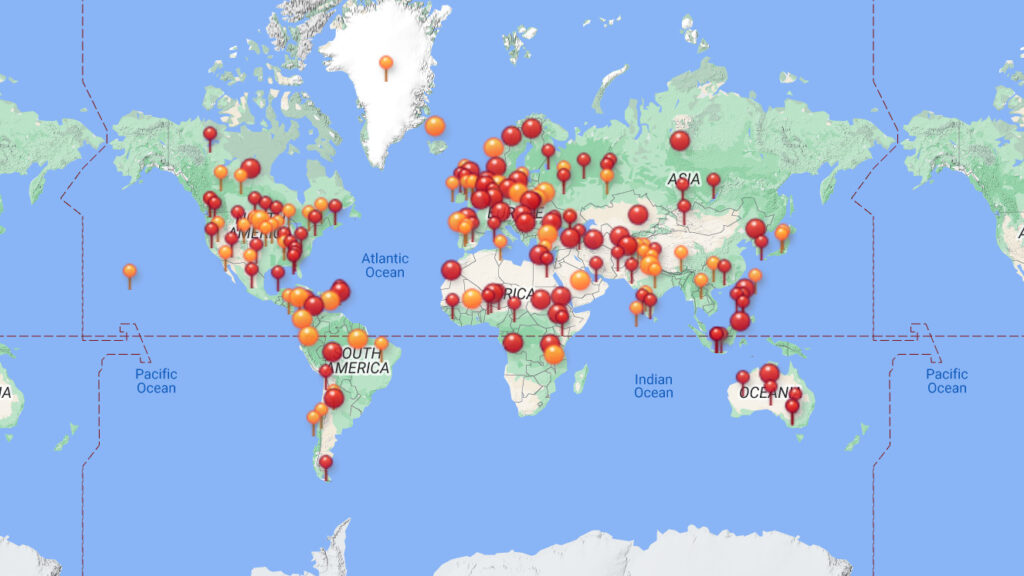The organization that runs the infectious diseases surveillance system ProMED terminated at least three of the program’s top moderators on Thursday. The three were leaders of a strike that began in early August — one that is scheduled to end on Monday.
Longtime moderators Marjorie Pollack and Maria Jacobs, along with associate editor Leo Liu, received notification from ISID CEO Linda MacKinnon that their consulting agreements with the International Society for Infectious Diseases were being terminated.
advertisement
Other moderators who took part in the strike reportedly received emails from MacKinnon informing them that some moderators would not be returning after the events of the past month.
MacKinnon would neither confirm nor deny that the ISID was cutting ties with Pollack, Jacobs, and Liu, writing in an email to STAT that “these are personnel matters and as such are confidential.”
“We have been working with the ProMED team and are committed to meeting their requests for greater transparency and increased communication. We remain on track to shift to a subscription model and other activities that will support the sustainability of ISID’s ProMED as the global leader in the early-warning disease detection space,” MacKinnon wrote.
advertisement
News of further turmoil at ProMED startled some of the people who have been hoping to find a way to safeguard the future of the program, which first alerted the world outside China to the start of the SARS outbreak in 2003 and was among the first voices to raise alarms about what became the Covid-19 pandemic.
“This is very surprising. It doesn’t feel like it’s a move that would help solve ProMED’s problems,” said John Brownstein, chief innovation officer at Boston Children’s Hospital and the architect of a number of web-based infectious diseases programs, including HealthMap.
“The strength of ProMED is not in the technology, it’s in the people,” he said. “And if you eliminate the people, you’re not left with much.”
Both the striking moderators and ISID have been in talks with a number of potential saviors. While ISID appears to be open to a variety of options, including partnering with other organizations, the moderators have made it clear that they believe it is time for ProMED to settle into a new home. The program, which began in 1994, has been under the ISID umbrella since 1999.
Pollack first subscribed to ProMED in April of 1995, and started working there in 1997. She was the program’s deputy editor for years, though was demoted after criticizing the ISID’s termination of longtime editor Larry Madoff in the spring of 2021.
In the waning days of 2019 when word emerged of a disease outbreak in the Chinese city of Wuhan, Pollack immediately sensed the import of the event. “My first response is: ‘Oh hell, this is SARS revisited,’” she told the New York Times in an article on chronicling the start of the pandemic.
Jacobs, too, is a long-time ProMED hand. In fact, she was hired as ISID’s first full-time employee in 1988. In 2022 her ProMED colleagues gave her their annual award for excellence in outbreak reporting. Jacobs, ProMED’s senior technical editor, had also received the award in 2018.
Liu is a newer addition to the ProMED team, having worked as a physician in private practice, as a biotech executive, and as a member of the boards of a number of science nonprofits.
The moderators went on strike in early August to protest a decision by ISID to adopt a paid subscription-based model, without consulting ProMED workers. The model, which is still in development, has put ProMED’s valuable archive out of reach. Only posts that have been published in the past 30 days are searchable on the website at this point.
The moderators — most of whom work for a $7,000 a year stipend — also complained that their pay was months in arrears. They have been told that they will be paid by the end of September.
It appears that ISID is struggling to stay afloat. The organization’s tax return for 2021 showed it was in the red, with donations down dramatically. The society’s office, an apartment in Brookline, Mass., just outside Boston, has been placed up for sale.
“We are an internationally dispersed workforce with a co-working space as needed for in-person meetings with our home base in Boston,” MacKinnon said. “As the pandemic proved for many, a truly global organization such as ours does not need a full-time brick-and-mortar building as we focus our investments on more mission-centric activities.”

